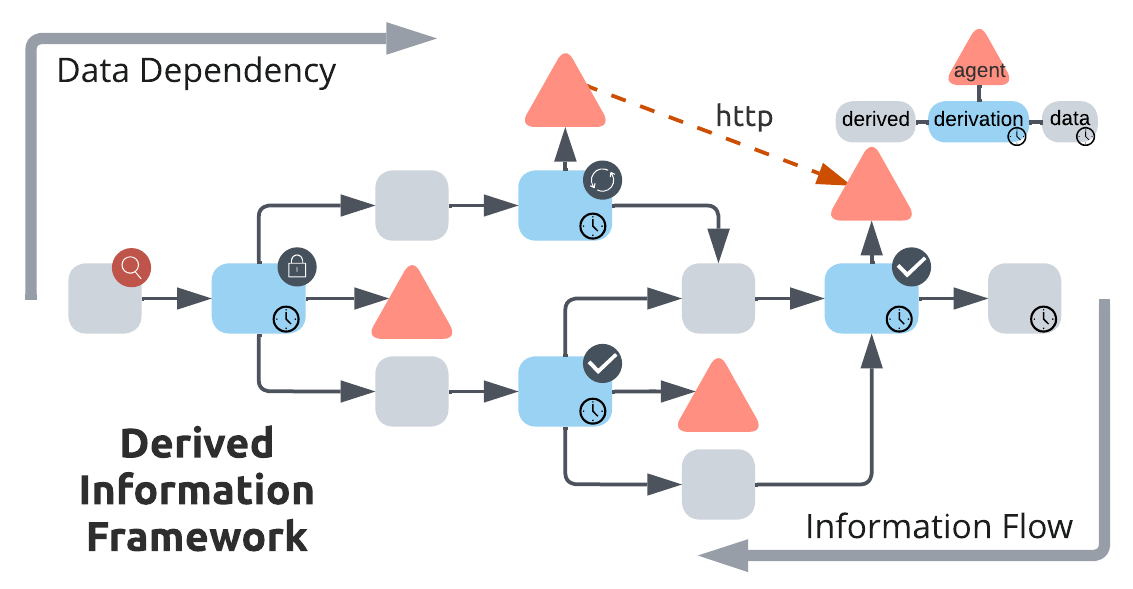A derived information framework for a dynamic knowledge graph and its application to smart cities
- An ontology to represent derived information in a knowledge graph is developed.
- Generic agent templates for handling the derivation process are provided.
- The fully automated framework populates directed acyclic graphs of derived information.
- Information updates propagate through the knowledge graph upon access.
- The framework is applied to assess the impact of a potential flooding event.
 In this work, we develop a derived information framework to semantically annotate how a piece of information can be obtained from others in a dynamic knowledge graph. We encode this using the notion of a “derivation” and capture its metadata with a lightweight ontology. We provide an agent template designed to monitor derivations and to standardise agents performing this and related operations. We implement both synchronous and asynchronous communication modes for agents interacting with the knowledge graph. When occurring in conjunction, directed acyclic graphs of derivations can arise, with changing data propagating through the knowledge graph by means of agents’ actions. While the framework itself is domain-agnostic, we apply it in the context of smart cities as part of the World Avatar project and demonstrate that it is capable of handling sequential events across different timescales. Starting from source information, the framework automatically populates derived data and ensures they remain up to date upon access for a potential flood impact assessment use case.
In this work, we develop a derived information framework to semantically annotate how a piece of information can be obtained from others in a dynamic knowledge graph. We encode this using the notion of a “derivation” and capture its metadata with a lightweight ontology. We provide an agent template designed to monitor derivations and to standardise agents performing this and related operations. We implement both synchronous and asynchronous communication modes for agents interacting with the knowledge graph. When occurring in conjunction, directed acyclic graphs of derivations can arise, with changing data propagating through the knowledge graph by means of agents’ actions. While the framework itself is domain-agnostic, we apply it in the context of smart cities as part of the World Avatar project and demonstrate that it is capable of handling sequential events across different timescales. Starting from source information, the framework automatically populates derived data and ensures they remain up to date upon access for a potential flood impact assessment use case.
- This paper draws from preprint 302: A Derived Information Framework for a Dynamic Knowledge Graph and its Application to Smart Cities
- Access the article at the publisher: DOI: 10.1016/j.future.2023.10.008



